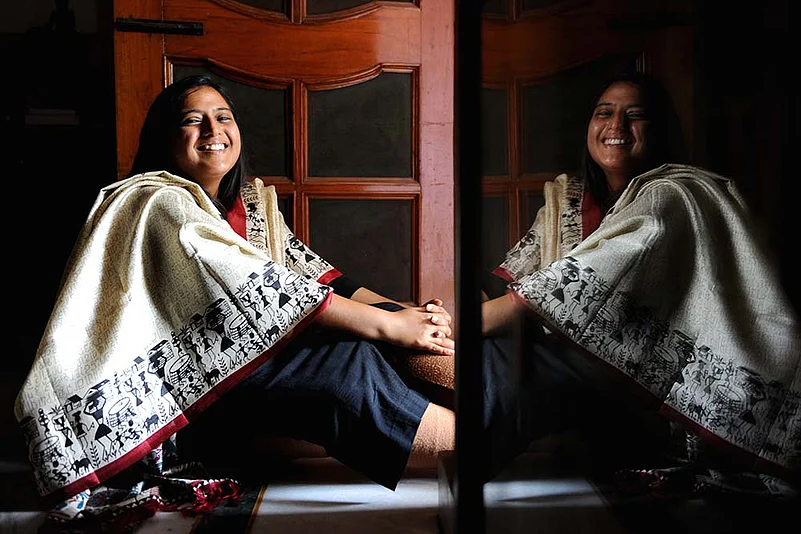The national media is celebrating the success of young Dalits and Muslims in the civil service exams held in 2015, whose results were announced late last week. The euphoria is understandable, yet it conceals just how tough it is to tame the beast called caste. Because, for every Tina Dabi, the Dalit woman who topped this year's exam, there are as many who do not wish to even disclose their caste, fearing, among other things, a social backlash.
Take the example of a successful Dalit candidate who has cleared the test on merit after having applied under the reservation criteria. This person feels conflicted about revealing their identity and cites two key reasons. First, that after succeeding on merit, caste identity becomes irrelevant in their case. Also, despite belonging to an elite section of society, the concern persists that should their caste be publicly known, both career and social life might be hampered. This is, understandably, a risk this person would rather not take. "I don't see how my being from a scheduled caste is relevant once I clear the exam on merit. It's a question of my privacy. Also, some successful candidates have revealed that they are Dalit -- and look how they are being hounded," this person says.
Advertisement
Udit Raj, a BJP Member of Parliament and Dalit rights activist, says he has seen this scenario play out over and over again. "There is some improvement in the position of Dalits but an exception cannot be seen as the rule," he says, referring to the publicity around few successful Dalit candidates in the IAS or other central government services. The happy ending isn't just when a person from a disadvantaged group clears the civil service exam, he feels. For, says he, even when employed in government, Dalits regularly approach him with appeals for assistance against discrimination because of their caste.
Advertisement
Here are conversations with eight successful civil service candidates. One can only hope that the vicious critics of Dabi, and of caste based reservations, are hearing these voices.
1. Sandeep Kumar, 28, SC, Rank—780
I have lived in a slum all my life, in Delhi and went to school here. My father was an auto rickshaw driver. I cleared the exam in the second attempt. I was a correspondent student at Delhi University’s School of Open Learning during graduation and couldn’t afford coaching for the IAS exams. My family migrated here in the 1970s from lack of work and poverty in Amravati, Maharashtra.
I lost my father, the sole bread-winner, to a heart attack in 2014. I didn’t know about civil service until around 2010. In a chance encounter, I heard of the IAS as a “big post” worth trying for. That set me off, and I began from scratch -- by googling what IAS and UPSC stand for. After this I began studying 10-12 hours a day in earnest.
In my surroundings, there are hardships for all around, so I don’t fight shy of revealing I am a Dalit. I am one of those who consider BR Ambedkar their icon. I am one who believes in Bhagat Singh as a role model. I have seen my community and locality’s people mired in ignorance through my youth and want to change that. Nobody in my slum knows about IAS. There is no awareness among the Dalits and a great lack of confidence as well.
I alone have cleared class ten in my family. My younger brother studied all day, then worked nights, to support me. I expect to make it to the IPS this year. I will join the service I’m given. Since this is only my second attempt I will try again for IAS. It is premature to consider either excluding the relatively well-off or a reservation on solely economic criteria. I am from a slum so I know how poverty and ignorance are widespread and exist together.
2. Abhishek Kumar, 25, ST, Rank—71
I am assured a place in the IAS. I have tried twice before to enter the prestigious administrative service. This year, I am among the few dozen engineers and doctors who have made it through. My father, a stenographer in a government department, worked his fingers to the bone to get us children educated. I went to IIT, Kharagpur. I always heard people talk about ‘the system’ but now I will see how it really works. We always say, India has good policies but lacks in execution. Now I want to see if this is true, or if we lack intention somewhere. My parents, not I alone, struggled very hard for him to go to IIT, and my sister to Maulana Azad Medical College. My parents sacrificed everything for us. My maternal uncle, a well-known Dalit activist in Maharashtra, told me about the possibility of joining government service. I believe in Ambedkar. My uncle inspired me to take a shot at the civil service exam, while Ambedkar inspired all Dalits to rise above their given circumstances. The IAS is a stable career option, but it also has another, deeper significance, which is to do something meaningful for the public.
I left the option of being in a large company where I was placed through campus interviews at IIT. The toughest part of civil service preparations was to make great sacrifices of time, and giving up on social life. It entailed tremendous isolation, while I studied for 10-12 hours a day. My aim is to try and create a level playing field, and I will see how that can be done through public service. I have made it into the merit list though I am entitled to reservation. So I would be considered a general candidate. My view on reservation is that many may have got opportunities through reservations. They may have been many placed in a position to reap the benefits of reservations, but it is not yet time to discard reservations or to see them in purely economic criteria.
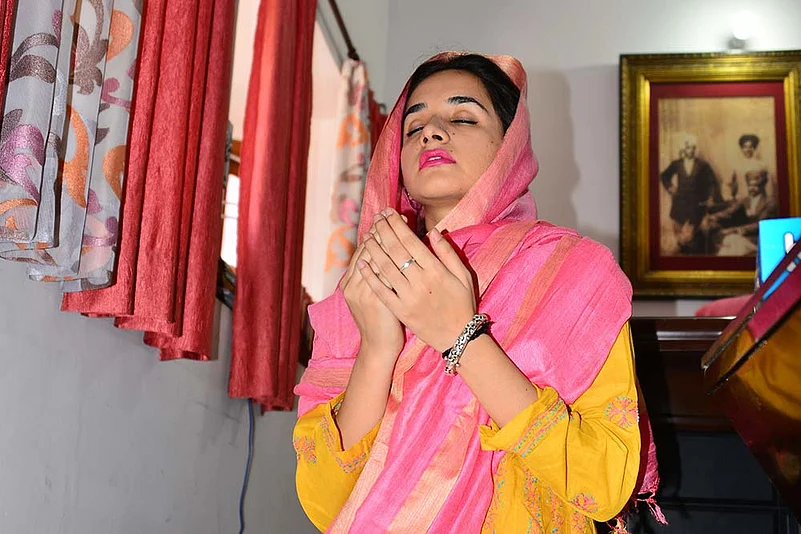
3. Farha Hussain, 26, Rank—267
We are from Jhunjhunu. My father moved out when he became a civil servant. I studied at Sophia, Ajmer and Jodhpur’s Rajmata Krishna Kumari Girls’ School. The civil service was always at the back of my mind though I became a lawyer and started working in Bombay. I realized that was not the life I wanted and left that to prepare for 3.5 years. I am told I am the first to clear UPSC from my community in Rajasthan. That is because of the state of education among Muslims. There is no awareness of UPSC or how to prepare for it. I think the most important reason why Muslims are not appearing for UPSC exams is that there is a kind of phobia in the community. The moment they hear the word UPSC they go ‘Oh my god’, like this is the mother of all exams. There is also a tendency among minorities, Muslims in particular, to believe that the government does not do enough for us. Nobody gets anything on a platter, you have to grab opportunities. It does no good to blame the government for everything. Yes, I am lucky to be born in an educated family. I am also lucky because while my parents grew up in modest circumstances with hardly any money, they supported me throughout. I am happy with any posting or assignment I get. I will take the UPSC test again, aim for the IAS if I have to. I would like to do something significant, with long-term impact, for women in the service.
Advertisement
4. Shaikh Ansar Ahamad, 26, OBC, Rank—361.
The media has reported about how I changed my name to Shubham to find a room on rent. I want to make it clear that in all other aspects of my life I never hid my identity. I have not lived my whole life under another name. I have lived as myself. Changing my name in that circumstance was a kind of compromise—don’t we all make adjustments with those in a position to hurt us, so we can carry on? Now that I am through the civil services, I know I will never face such a situation again. My heart is in rural development, water supply management. I also want to work on Hindu-Muslim unity. Yes India is secular and there is 99 per cent Hindu-Muslim unity. With another 1 per cent improvement it will become 100 per cent and that is what I want. I’m the only graduate in my family. I entered Ferguson, Pune, because I studied very hard in senior school. Yes, I have sacrificed a lot and my family more than I. As far as financial difficulties go, I can tell you that during my four years in Mumbai I went home for Eid only twice. You can imagine our situation. But then I believe in being positive and in striving to overcome. Our Constitution has been my friend and guide throughout. I believe there should be no discrimination. The Constitution has been written after a lot of thought. I can’t claim to know better than those who wrote it—so you can conclude what my opinion on reservations is.
Advertisement
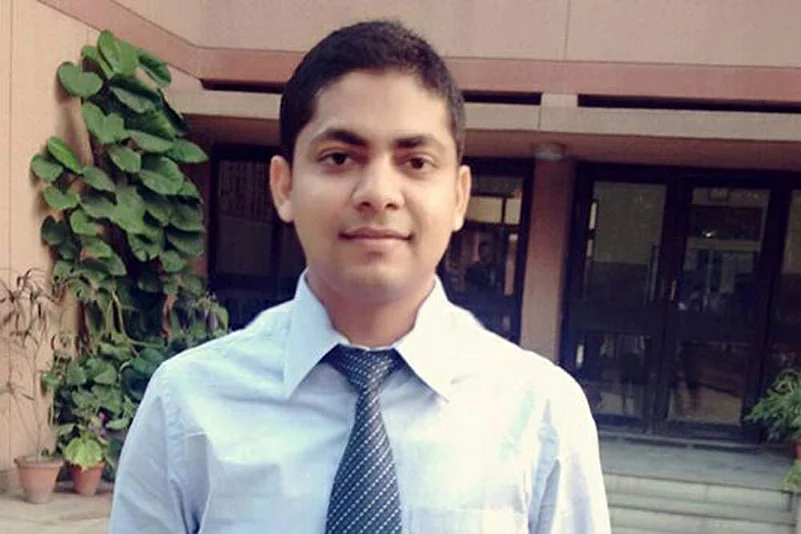
5. Mohammad Arshad, 26, Rank—316
I studied in Dumka and later Bokaro. Mine is a solidly middle class background—no luxuries but everything we needed, we got. My father is a clerk with the government, who left no stone unturned to educate me. I got a merit-cum-means scholarship meant for children from families with annual incomes less than Rs 4 lakh. My brothers didn’t qualify for this, as my father’s income exceeded the cut-off by their time. After college I worked at Deloitte, Hyderabad, earning a handsome salary. I am an engineer from IIT Kharagpur. I left the job to prepare for the civil service exams. I joined the Hamdard Study Circle in Delhi and worked towards giving good answers in all papers. I identified areas I needed to work on. At that time, I faced a lot of stress and anxiety. The years of preparation and my unemployed status were a constant pressure. It was a do-or-die situation. This was my fourth attempt. In my previous attempt, in 2014, I was selected for CISF. Now I expect to get into IRS or IPS. I am very happy. My father had struggled in life but he had educated himself. All my brothers are now keen on UPSC. I can guide them. I am being felicitated by my mohalla, even by the state welfare minister—everyone is elated. Muslims are unable to study beyond a point because they aren’t aware of opportunities. My becoming an officer has sent a good message. I wish to inspire more people to try the UPSC exam.
Advertisement
6. Dr P Uday Praveen, SC, 28, Rank—593
I am a doctor, from Chittoor, where the famous Tirupathi temple is. This was my fourth attempt. I want to be in the IAS for I no longer wanted to be confined to the human body’s problems. I want to work on the system, to find what causes the disease, cure that. Coming from a technical background I had to begin my exploration of social studies from scratch for this exam. I took six months off in 2013 and went to Hyderabad for coaching. I think I will be allotted IAS this year. Being entitled to reservations, I believe I am the last in the list to qualify. My goal is to work for physical and mental health, of children in particular, though I am prepared for any work allotted me. A child’s health determines his future choices and abilities, including the work he later does. My father works in the AP state housing corporation, earlier as a Works Inspector and now as a Mandal in-charge. I am the only IAS officer in my family, and the only one in a central government service. I grew up in difficult circumstances. I don’t want to say much about it. We kept our daily needs limited to necessities. We faced problems but surmounted them. What I’ve noticed in my community is the lack of awareness among people of their own potential to make a change. Even with available opportunities a lot can be done. I want people to know and understand this.
Advertisement
7. Harsh Indora ST, 29, NCR, Rank—867
I am an engineer from Delhi College of Engineering and a post graduate in Public Administration. I was inspired by my father to join the civil service. My father always worked very hard. He worked in Delhi Tourism. I could see how he was often unable to take certain decisions even if he felt they would have been good. Perhaps he was limited because of his position. I expect to make it to an IPS or IRS officer’s seat this time. This is my fourth attempt. I feel that school and college students should be introduced to UPSC early on. Science students in particular get no exposure to UPSC, so they start from scratch. Social pressure was the biggest factor to overcome while preparing for this exam. Even when family supports you, a person actually withdraws from social life while studying for UPSC. A kind of identity crisis can draw upon you over those years. I wasn’t a brilliant student, even bunked classes for sports. I was in the under-16 basketball team. I feel all India’s problems can be addressed by tackling education. I don’t mean literacy but the kind of education that inculcates a sense of understanding. I feel a creamy layer can be introduced into the present reservation system. However, it should take into account the education of parents and their background over three generations. Reservations must not be solely on economic criteria. Even today, in ST households, you will find women are not graduates, while everybody knows how important it is for mothers to be educated in the bringing up of a child.
Advertisement
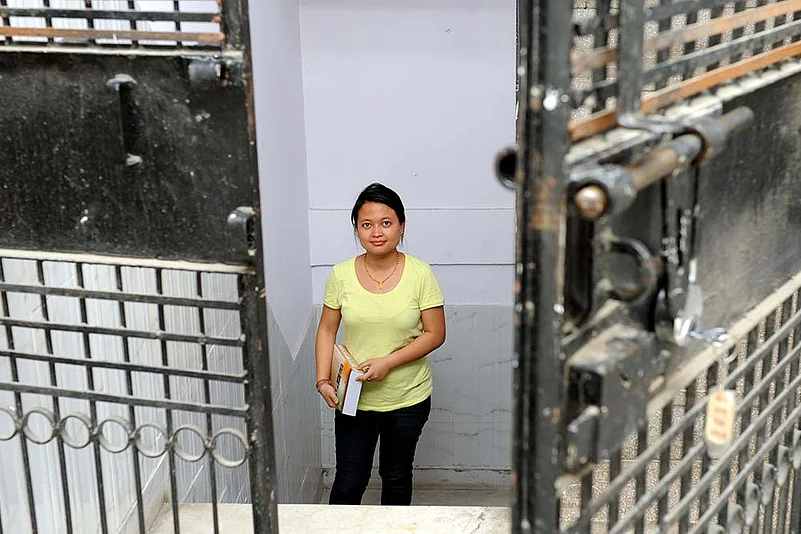
8. Khumanthem Diana Devi, 24, Manipur, Rank—24
I did my BSc at Miranda House, Delhi University and worked as guest lecturer in Physics after my MSc from the same university. I wanted to appear in the civil services exam since childhood. My father, a police officer, inspired me. He showed me what an able administrator can achieve. I have been living in Delhi for nine years. This year Manipur has many successful candidates, and one reason is that people are better informed now. Earlier, Manipuris mostly pursued state service exams. Now they are more acquainted with what is happening through television, social media etc. Another reason is that the UPSC is considered a merit-based system, so more people feel encouraged to try. In the IAS, I would like to do whatever is offered to me. I don’t want to be choosy. The secret for my success is a bit of luck and some principles—honesty, simplicity, patience, hard work, discipline and punctuality. Khumanthem is one of nine clans of the Meitei tribe. Some Meitei are agitating for Scheduled Tribe status, because they feel that deserving candidates are not getting jobs etc. The situation is somewhat like what we see in Haryana and other places. Here too many feel that there is need to define a creamy layer within existing reservations. Even I feel there should be a creamy layer because in Manipur the situation is unique. Here 40 per cent of the population is ST. My community is in the general category but the fact is I am only the second Meitei girl to clear UPSC. There are a very few Meitei men in service.
Advertisement
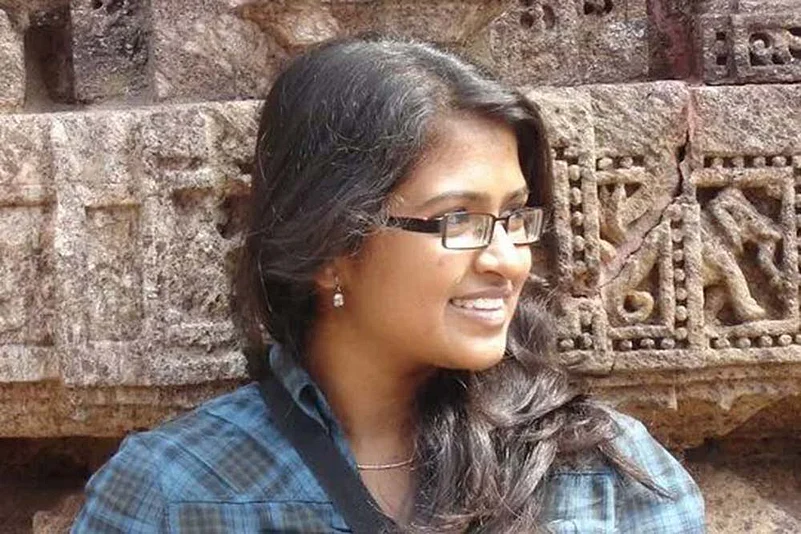
9. Keerthishri S, 28, Karnataka, General, Rank—380
This was my fourth attempt at the exam. I spent four years preparing. I am an architect and worked for around six months in a firm. By my second year MA, I was already thinking of civil services. My interest in city development, planning and municipalities spurred me to think about UPSC. I thought—let me give it a shot. I gave myself two years. Though I did not succeed initially, I saw progress in myself and kept going. The biggest challenge was how to translate my effort at learning into results in the exam. I joined Insight, a training institute. They made us do a lot of tests and that helped a lot. According to the rank I have got, it is possible I shall be assigned IRS, and I will go for it. I will give the exam again and try to enter the IAS, my first choice. Both my parents are professors and I studied in Tumkur until class XI where they are based. My community, the Vokkaligas, are OBCs but I could not determine—even the local Tehsildar was not sure—if I qualify for reservations or not. Not wanting to risk a legal challenge at a later stage, I applied as a general candidate and got 380 rank.
Advertisement
10. Rachna Chhokar, OBC, 27, Rank—597
I graduated from St Stephens College in Delhi and did my post graduation in Sociology from Delhi School of Economics. I started working towards a PhD, which I did not complete, on non-formal education and the right to education (RTE). I looked at caste, class and gender aspects of RTE with the final goal of examining the efficiency of the system. This was my seventh attempt and I have two more, being OBC. I hope I only have to try once more! I was placed with the National Institute for Financial Management, the government’s civil accounts training wing in Faridabad, after one attempt. I succeeded again, and switched to IRS, the revenue service. I have taken time off until December from that so that I can appear again for the exam. I am the first in my family to join the civil service. Everybody supported me. My father was a district public relations officer at Karnal and later a lawyer, until he passed away. My mother is a home maker and social worker. My husband is an Income Tax inspector at Jhandewalan; he joined through the SSC. He has supported me throughout. The civil service holds the promise of making social transformation possible, that’s why I’m drawn to it. I don’t think reservations are fulfilling their purpose entirely—in terms of their efficacy. There is a dearth of representation of the socially disadvantaged in government jobs, in positions of leadership in particular. Reservations are not a panacea but they are an important step. We cannot deny that it is creating a level playing field.






